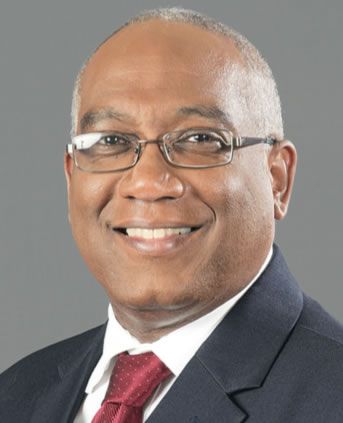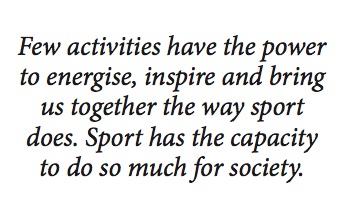Who could possibly forget that supernatural moment when the people of Trinidad and Tobago descended in a tide of red on the Hasely Crawford Stadium in 1989 for the World Cup qualifier against the USA? Even though we were unsuccessful, the overwhelming energy of togetherness and patriotism was one of our greatest expressions of nationhood. That is the power of sport.
Few activities have the power to energise, inspire and bring us together the way sport does. Sport has the capacity to do so much for society. That’s why as a university we continue to invest in sporting activities and programmes. The most powerful example of that investment in recent years is the establishment of our Faculty of Sport in 2017. Based at UWI’s Regional Headquarters in Jamaica and operating through Academies of Sport at the Cave Hill, Mona, Open and St Augustine Campuses, the faculty offers undergraduate programmes in sport coaching, kinetics, sciences, and leadership and management, and graduate programmes in sport science, medicine, physiotherapy, business management and even a PhD in sports.

Through the Faculty of Sport we have started to develop a new generation of athletes and sports industry professionals for the Caribbean. Our economies can benefit. Our sportspeople and teams can become more internationally competitive. And we can encourage more of our youth - even those not traditionally inclined to do so - to take part in sports.
This third benefit of sport and physical education in general is particularly crucial right now. Globally, as societies have risen in development and prosperity, and as work and recreation no longer require much movement or exertion, there has also emerged a new understanding of how important motion and physicality is for our welfare. Several studies have shown that there are many health benefits to sport and physical activity in general. People who take part in even moderate exercise on a regular basis have lower mortality rates than those who don’t. Research has also shown that a sedentary lifestyle greatly increases the risk of cardiovascular disease. In the extreme there is the issue of physical literacy that I raised in previous issues of UWI Today – education that targets “mastery of mind and body, effectively striving for each individual to optimise the development and use of every facet of their physical bodies”.
Apart from the long term health benefits, think of the level of sportsmanship we could achieve if we could only effectively do this on a national level and from a very early age.
Sport can improve our mental and emotional health. Conditions such as depression, anxiety, psychological distress and emotional disturbance can all be helped with exercise.

And then there are the character-building effects of participating in sports. The drive to compete, the value of teamwork, and the mental toughness required to win - or accept loss - are crucial in games and in life. Resiliency, a willingness to do the hard work, clear-headedness in times of stress, and a capacity to recognise and (when necessary) confront aggressors are universal assets that are developed on the field of play. A sense of connection and commitment to team, community and country are as important for a good citizen as it is a good sportsperson.
This is the type of graduate we want to help create - one that not only has the education necessary for a successful career, but also the character and life skills for true prosperity and well-being, as well as the inclination to help others achieve the same.
Last year, through an initiative of Deputy Principal Professor Indar Ramnarine and the UWI Development and Endowment Fund (UWIDEF) we awarded ten sports scholarships to student athletes. In October 2019 we also made sport scholarships the recipients of funds raised at the annual UWI SPEC International Half-Marathon.
UWI SPEC (Sport and Physical Education Centre) is the hub of sporting and fitness activities on campus. On any day of the week, you can see students, staff and visitors engaged in the art of movement. And while there are different levels of performance, from peak athlete to first-time fitness enthusiast, what matters most is that they are here and they are moving.
I recommend that all of us in the campus community and our readers in the wider society follow their example. Start to move. Take a Sunday sweat with some friends in the park. Take a run around your nearby savannah. Wake up in the morning and do some jumping jacks. Nothing too strenuous, and of course be guided by your doctors and health limitations. But if you can, do something. Let us all get on the path of becoming whole.